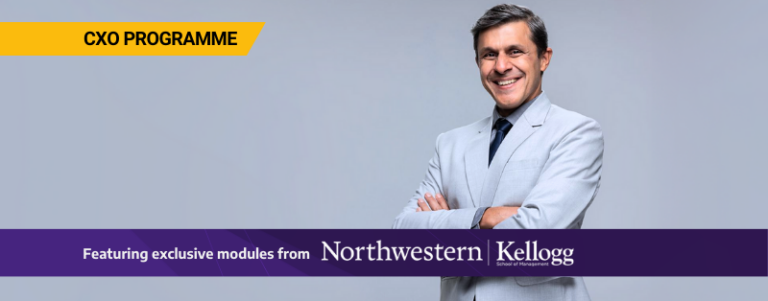What is Authentic Leadership and What are Its Benefits?

Many people often find industrialist and philanthropist Ratan Tata to be a truly inspiring leader. Unlike leaders who usually prioritize profits and share prices, the Tata scion provides a refreshing perspective in a profit-driven business world. Leaders like him, who bring a genuine perspective to the world of business, are often known as authentic leaders. Today, leadership with integrity is a rare quality in such a competitive environment. However, this kind of leadership is exactly what motivates and inspires teams. Furthermore, such true and transparent leadership comes with many benefits, such as better work relationships, improved trust, greater productivity, and a positive work environment. In this article, therefore, we try to understand how authentic leadership works, what the main components of this style are, and the benefits and challenges of it.
In this blog, you’ll learn:
- What is Authentic Leadership?
- What are the Four Components of Authentic Leadership?
- What are the Characteristics of Authentic Leadership?
- What are the Benefits and Challenges of Authentic Leadership?
- Examples of Authentic Leaders
What is Authentic Leadership?
 Authentic leadership is an approach in which leaders are self-aware, transparent, genuine, and true to their beliefs. Authentic leaders rely on their internal values instead of a leadership style or theory to guide their actions. They are not averse to other leadership styles and theories, but they personalize everything to consistently show who they really are as individuals.
Authentic leadership is an approach in which leaders are self-aware, transparent, genuine, and true to their beliefs. Authentic leaders rely on their internal values instead of a leadership style or theory to guide their actions. They are not averse to other leadership styles and theories, but they personalize everything to consistently show who they really are as individuals.
Furthermore, this leadership approach also focuses on developing self-awareness and emotional intelligence, also called Authentic leadership development. Simply put, authentic leadership development refers to the process of cultivating and enhancing leadership qualities that are true to an individual’s genuine character, values, and beliefs. In contrast to the traditional leadership approach that might prioritize a specific leadership persona, this leadership approach emphasizes self-awareness, sincere connection with team members, and, lastly, leadership with integrity.
ALSO WATCH: Top 6 Qualities of a Good Leader in a Workplace | Leadership | Emeritus India
What are the Four Components of Authentic Leadership?
1. Self-Awareness
Authentic leaders are self-aware, which means they are aware of their strengths and weaknesses. Additionally, they have a strong value system and work ethic that also influences their team members and peers. Moreover, they strongly believe in displaying both their strengths and weaknesses to their team. This helps in building trust among team members, so when employees make a mistake, they feel more comfortable admitting their errors.
2. Relational Transparency
Authentic leaders are willing to share information with their team members. They also believe that transparency and honesty must be encouraged at the leadership level. An important consequence of this is that businesses with relational transparency have stronger interpersonal relationships. This is why authentic leaders usually promote such transparency, hoping this will encourage their employees to be honest and open as well.
3. Balanced Processing
Balanced processing is when leaders don’t distort, magnify, or ignore information. They carefully look at all the important data before deciding. This helps them avoid favoring one side and make fair choices. An authentic leader decides and stands by their choice, even if others don’t agree. They also know it’s vital to consider different points of view and encourage feedback from team members and different departments.
4. An Internalized Moral Perspective
Authentic leaders demonstrate a strong moral code. Internalized moral perspectives enable leaders to make business decisions consciously and align their core values and ethics with every decision. Simply put, authentic leaders like to reflect their ethics and philosophy in their businesses.
ALSO READ: 8 Types of Leadership Styles and How to Choose Yours
What are the Characteristics of Authentic Leadership?
1. Good Listener
A good leader offers great advice but a better leader develops trust by actively listening to what their team members are saying. Authentic leaders are good listeners. Moreover, they have a high Emotional Quotient (EQ) that helps them understand, use, and manage their emotions to empathize with their team members.
2. Self-Aware
Authentic leaders have a strong understanding of their strengths and weaknesses. Moreover, they are vocal about their strengths and weaknesses with their team members too. Furthermore, authentic leaders have high emotional intelligence, a leadership skill that is often the key to becoming a successful leader.
3. Relationship-Driven
Authentic leaders strive to create a meaningful relationship with their team as they work toward achieving organizational goals. Essentially, authentic leaders value relationships as much as results.
4. Self-Discipline
Self-discipline means resisting impulses, staying focused, and completing tasks. Authentic leaders have strong self-control that promotes diligence across the team, even amidst distractions.
5. Empathy
A part of what makes authentic leadership a successful approach in today’s business environment is that it values empathy deeply. This often ties into their desire to have relational transparency with their team members.
ALSO WATCH: 7 Essentials of Leadership | Aditya Chakravarty | Emeritus India
What are the Benefits and Challenges of Authentic Leadership?
 Benefits
Benefits
- Increased job satisfaction among employees
- Such kind of true leadership also creates a positive work environment
- Furthermore, there is a clear emphasis on collaboration rather than individualism
Challenges
- Seeking honest feedback may lead to discomfort, making it challenging to maintain authenticity
- Authentic leadership also requires being open about vulnerabilities and adapting to changing situations, which might be difficult for some
- Finally, balancing authenticity with effective leadership can be quite conflicting
Examples of Authentic Leaders
1. Narayan Murthy
Narayan Murthy, CEO of Infosys, is a perfect example of an authentic leader. Murthy’s approach to nurturing a culture of credibility, integrity, and accountability reinforces his reputation as an authentic leader. His transformational and visionary leadership style has led to the success of Infosys, and his lessons in leadership continue to inspire individuals globally.
2. Vineet Nayar
Vineet Nayar, CEO of HCL Technologies, has a unique management approach. He has demonstrated characteristics of genuine leadership. His leadership philosophy encourages exploration, turning challenges into opportunities, and prioritizing impact. His thoughts on effective leadership, motivational posts, and insights further highlight his authentic leadership qualities.
3. Steve Jobs
Steve Jobs, co-founder of Apple, is often regarded as an authentic leader due to his distinctive leadership approach. He emphasized product quality, showed a commitment to his vision, and demonstrated authenticity in his leadership style. His dedication to core values, honest execution of ideas, and clear vision contribute to his perception as an authentic leader.
ALSO READ: What are the Roles and Responsibilities of a Leader?
How to Become an Authentic Leader With Emeritus
One can become an authentic leader through professional courses offered by Emeritus. There is an array of leadership courses that Emeritus offers that focus on enhancing learners’ leadership skills and empowering them to lead authentically. These courses offered by some of the best universities help learners navigate modern leadership challenges and cultivate a true leadership style that inspires and motivates teams. Furthermore, enrolling in these courses offers learners valuable insights and strategies to foster genuine leadership qualities that resonate in today’s dynamic business landscape.

































